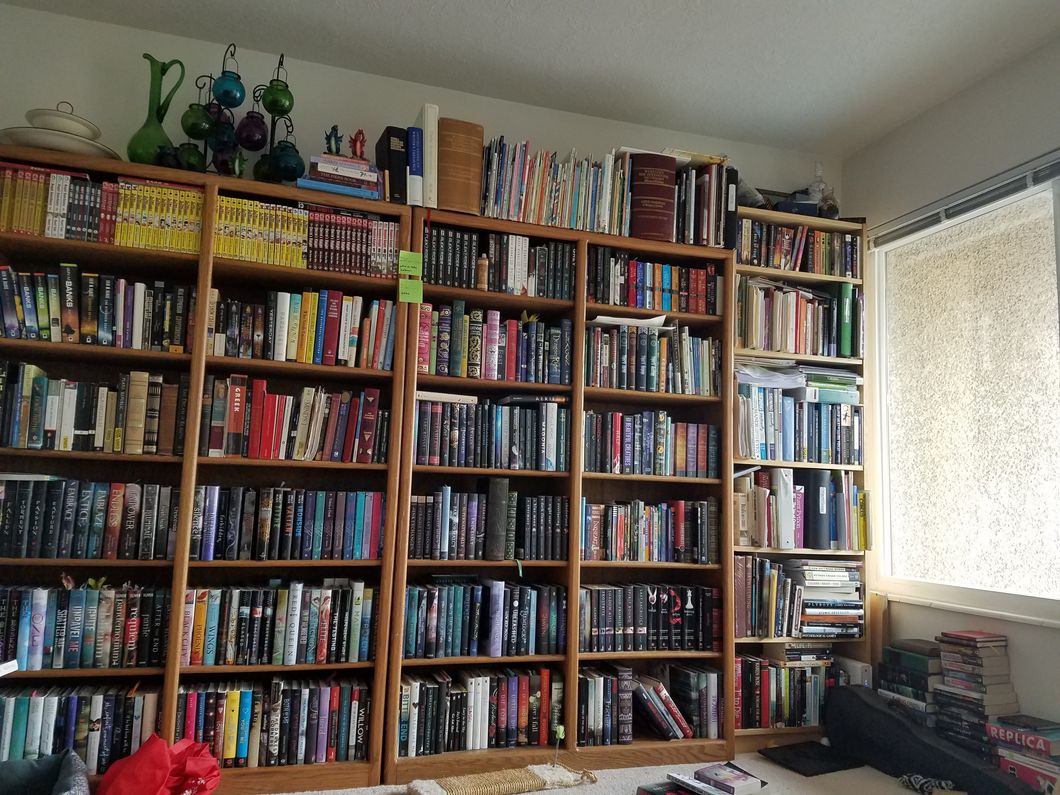If There's Anything I Learned From 'Lord Of The Flies,' It's That A Bunch Of Lost Boys Can Tell You A Lot About Society
I'm just going to jump straight into the parts that hit me the most.
Please don't read if you don't want spoilers!
Okay, we're good? Let's begin.
My mom got me the book "Lord of the Flies" by William Golding when I was still in high school. At first, I didn't pay much attention to it because I thought it was going to be just another classic book that I was required to read. It stayed on my bookshelf for years; and by years, I mean five years. This summer, after feeling like there wasn't a lot of things for me to do, I picked up the book and began skimming through the pages at my own leisure. Before long, I was wrapped up in it and reading through it on my commutes or when I had free time.
I'm just going to jump straight into the parts that hit me the most.
The deaths of Simon and Piggy were of the most gruesome in any literature I've ever read. In the movie, Simon is just stabbed to death with blunt sticks but in the book, he is clawed and scratched and literally ripped apart by the boys' hands. The reason they did this was because they thought of Simon as the beast. At the time, Simon was coming out of the forest to tell them that their "alleged" beast was in fact just a dead man. The boys were so wrapped up in their own fabrications of their beast theories, that they confused fantasy for reality and almost instinctively brutally murdered their friend.
For many, Piggy's death was even more tragic as throughout the entire novel, Piggy was the most rational yet laughed at character in the book. The name he was given, "Piggy" even sets up a derogatory insult at his weight. What's more- Ralph, his first friend, doesn't even treat Piggy with the slightest hint of respect until he himself has lost all his power, hinting at the subtle effects of power play throughout the novel.
What made me so sad at the end was perhaps the scene where Ralph was saved by the naval officer. Once the slightest sign of civilization, where rules and regulations held people together were present in front of the boys, all chaos came to an end. Jack's crew stopped trying to kill Ralph and everyone stood there stunned. As quickly as they descended into wild beasts, they were able to quickly regain their sense of civilization back to them. The boys began sobbing and heaving at the mere reflection of what happened in the few days on the island. It's hard not to cry in this scene because it's so much to take into account. The boys murdered two of their friends and honestly, you can't even blame them as they themselves are victims to a more sinister side to human nature that craves for power, bloodlust, and lucrative gains. We see that the boys have not escaped this and merely just ascended into a society where these traits are more hidden and that hides in more subtle ways in reality. People are often money hungry and will turn to immoral ways to earn power and money.
In retrospect, this is one of those books that changed me. It felt like a parable of reality with its not so sublime messages, ingrained into the harsh truths of our own world. I guess that's what brought me to a thought-provoking question of how quick it would be for us to descend into that level of madness once the laws and authority of society are broken down. I'm so happy I wasn't forced to read this in school as that might have taken away some of the enjoyment that I have from reading this book.





















